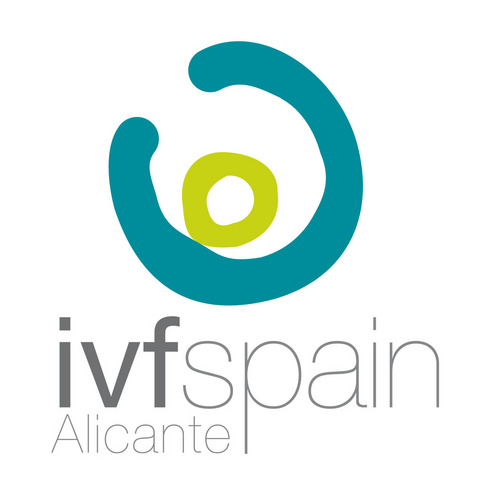- Why seek treatment in your country?
- What makes your country stand out from other medical destinations?
Spain is a leader in Medicine, specially in the field of reproductive medicine. This information can be easily found by searching for Spain and its ranking, as for its medical accomplishments.
It is also kind weathered and a well-known touristic destiny due to its gastronomy, welcoming people and, of course, as mentioned, the weather itself, but specially the fact that we have an outstanding beach area that can be visited all year through.
It is better priced than many European countries in all aspects- also for private services such as reproductive medicine. People from more expensive countries will have more acquisitive power in Spain than in their own countries.
- What are the standards of treatment in your country?
Warm relationship between staff and patients.
Personalised treatment both in the medical and in the patient care areas.
Continuous technological updates, as soon as new tools/tests are released or knowledge (that proves to be statistically significant and is accepted by the scientific community) is published.
Very accurate technique from the first to the last steps of the biological process of embryo development, starting with a highly personalised stimulation of the ovaries or the endometrium in case of egg donation; and, of course, great care regarding the retrieval, fertilization and transfer techniques.
Very high success rates in comparison with other countries.
Close follow up up to week 12 of pregnancy, moment from which the pregnancies of our patients can be handled directly by their gynaecologists.
- From which countries do your international patients come? Please specify the country name along with the average percentage of international patients from each country.
UK 22%, Germany 8%, Switzerland 33%, Netherlands 18%, Belgium 6%, Spain 7%, Others 6% (Scandinavian countries, Canada, USA, Australia, Russia, etc.).
- Do patients expect treatment to be in their native language?
Most of them do (except people originating from Asia for example, with whom we speak in English).
- What percentage of patients from abroad are treated in their native language?
95% of patients coming from abroad are treated in their native language.
- In which languages do you offer treatment to international patients?
English, German, French, Italian, Dutch, Russian, Polish, Swedish, Spanish.
- Which services/procedures do patients most frequently use in your clinic?
Exclusive egg donation, IVF Plus, IVF Plus + PGS, basic IVF, Endometrial Receptivity Assay, NK cell testing, complete Spermiogram with DNA Fragmentation and Apoptosis values.
- How long do patients need to wait for donor eggs?
We have no waiting list; however, there may exceptions regarding Chinese eggs (although not necessarily).
- By what criteria do patients choose treatment in Spain, as opposed to e.g. The Czech Republic?
The Czech Republic is also good priced for Europeans; however there is not great difference compared with us in terms of price – our success rates are also higher and make use of more advanced technology and techniques. That being said, we end up being chosen mainly due to our success rates.
- Treatment range
- Do you offer Egg donation – fresh eggs? Yes.
- Do you offer Egg donation – frozen eggs? Yes, but we prefer to work with fresh eggs and normally we do so.
- Do you offer IVF for single women? Yes.
- Do you offer IVF for same sex parents? Only for lesbian couples.
- Do you offer Sex selection/family balancing? We offer sex selection only in cases of sex-related diseases, not for family balancing.
- Do you offer Sperm donation? Yes.
- Do you offer Embryo donation? Yes.
- Do you offer surrogacy? No.
- Do you offer PGS – chromosome screening? Yes.
- Do you offer PGD – single gene diagnosis? Yes.
- Costs & success rates
- What do you think about the standard price of services provided in your country, in comparison with other countries? (Including neighbouring countries).
Spain is cheaper than many other European countries in two ways: It can be cheaper in absolute terms when comparing similar programs. It can also be cheaper (more accurately: more cost efficient) since for the same or slightly higher price the programs include much more input.
- Is success rate data monitored? By whom?
Success rates are registered by the head of the embryo laboratory, and we certificate them through external audits, like ISO 9001 or the TÜV certification.
- If so, how does this monitoring take place?
The certification audit is yearly, but the preparation visits can amount to 4/year + the audit itself.
- What do you think about treatment success rates in your country?
They are really good in general; higher than in many other places. This is why we receive many referrals rather than referring patients abroad.
- How you think success rates might be improved?
Success rates are greatly determined by the level of egg maturation, the retrieval technique, the sperm status (washing, capacitation), the care taken while performing the fertilisation technique and the optimisation of which fertilisation technique to use in each case depending on different variables of the sperm sample.
Any improvement regarding the accuracy of any of these factors will positively influence success rates.
The endometrial status (receptivity, phase, thickness, blood circulation) is also determinant.
- Law/legislation
- What laws regulate IVF treatment? (Please list the applicable acts and laws)
LEY 14/2006, de 26 de mayo, sobre técnicas de reproducción humana asistida (Law 14/2006, of 26 May, of human assisted reproduction techniques):
Common to IVF and Egg donation: Articles 3, 6 and 7.
- Are there any associations or legislative bodies governing, overseeing or monitoring the quality of IVF clinics?
The Health Ministry sends external auditors.
This is also expressed in the Law 14/2006, of 26 May, of human assisted reproduction techniques, article 19.
- Which procedures may be legally performed in your country? (Please specify which are legal and which are not.)
LEGAL: IVF, ICSI, Egg donation, PGS, PGD for detection of monogenic diseases, sex selection in the case of gender-related disease, double donation, embryo adoption, egg freezing for future family planning, artificial insemination with sperm from partner or donor.
NOT LEGAL: Surrogacy, sex selection.
- Are there any legal limitations to treatment (E.g., a woman’s age, marital status, a maximum number of embryos transferred in one cycle, etc.)
There is no legal limitation regarding the age of the patient (at IVF Spain we have our own policy regarding the age limit, which is currently established at 50 years of age).
The service can be provided to any woman older than 18 as long as she signs the informed consent for it, regardless of her marital status*.
*In the case of a lesbian couple undergoing reciprocal IVF they must be able to demonstrate being a couple (de facto or marriage license); if not we would be incurring in non-anonymous egg donation, which is illegal in Spain.
Partners need to sign the informed consents with the patient.
- What laws regulate the donation of eggs? Please specify.
Law 14/2006, of 26 May, of human assisted reproduction techniques:
Common to IVF and egg donation: Articles 3 and 6.
Specific for egg donation: Articles 5and 8.
- What are the rules of egg adoption for patients?
- According to our policy a woman can enter an egg donation program as long as she is younger than 51.
- All patients need to undergo the following tests:
- Serologies (HIV, Hep B, Hep C, Syphilis) of both members of the couple.
- TSH, Anti-TPO and Anti-Tg antibodies (female).
- Cytology.
- Mammogram.
- Complete spermiogram (regular spermiogram, DNA fragmentation in sperm and level of apoptosis in sperm).
In specific cases the specialist may ask for further tests.
- The donation is anonymous and the Spanish law states that the patient and donor must be physically matched as much as possible. The matching is done by the medical team strictly. The patients may not choose or see the donors. They would of course have access to their medical record in the future after the baby is born if they were to need it due to health issues of the child. For the matching we use a form where the patients describe themselves and also state in order of priority the characteristics they want in their donor, and we also use pictures of the patients.
- Changes or treatment cancellations must be made with the required notice so that the donor does not start her stimulation. Due to all our cycles being fresh, the stimulation of the patient is synchronized with that of the donor.





